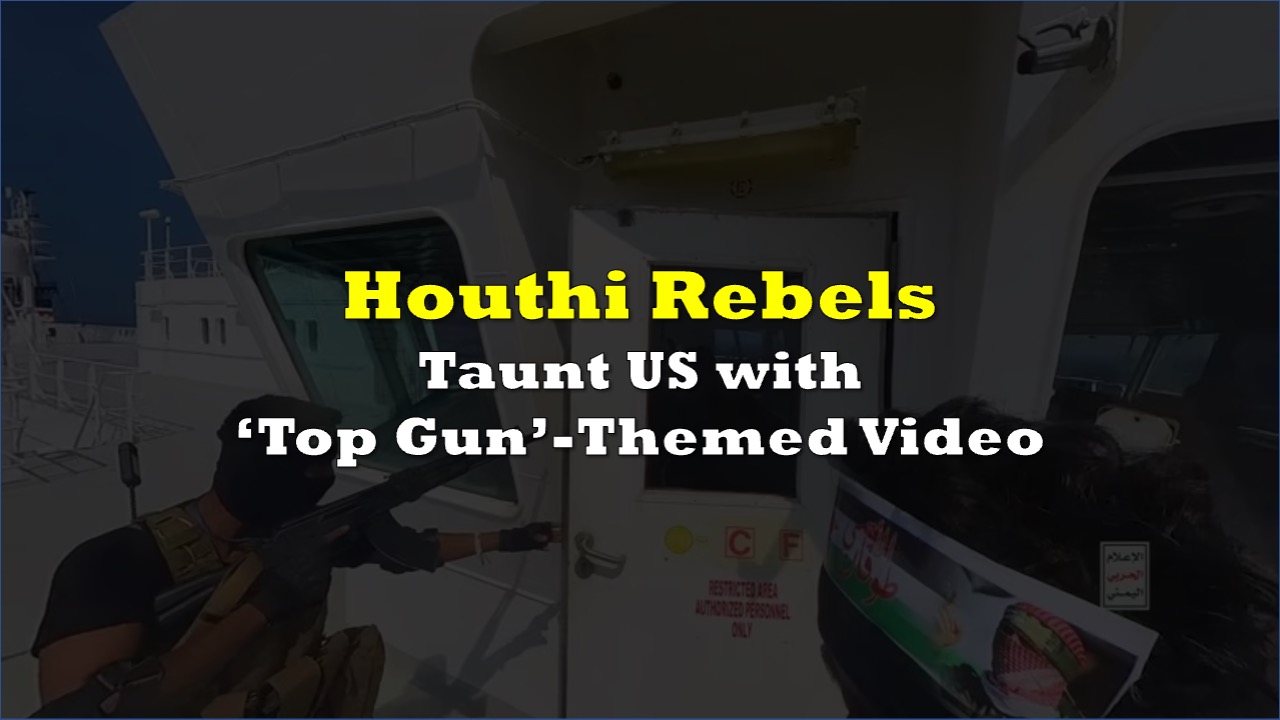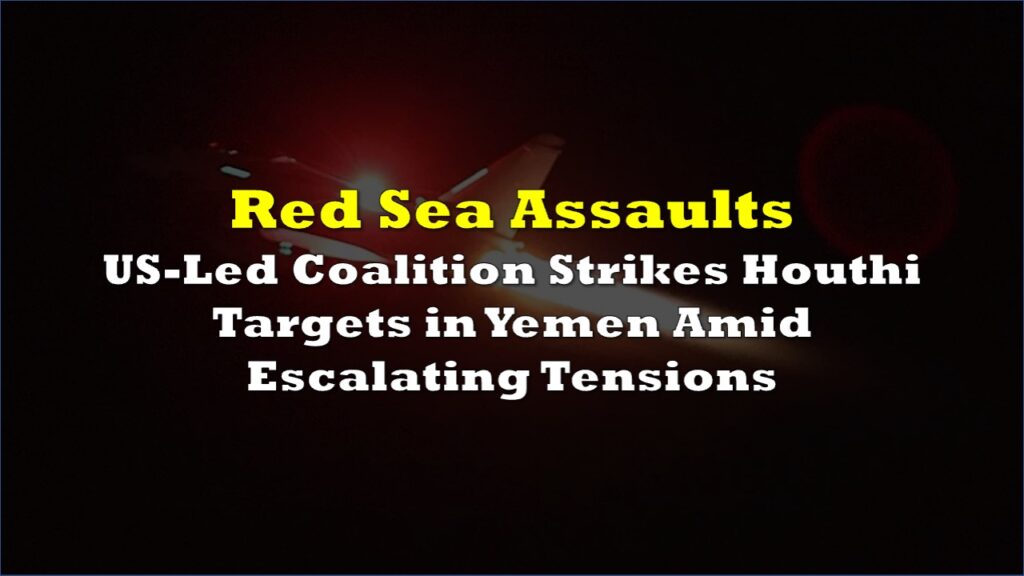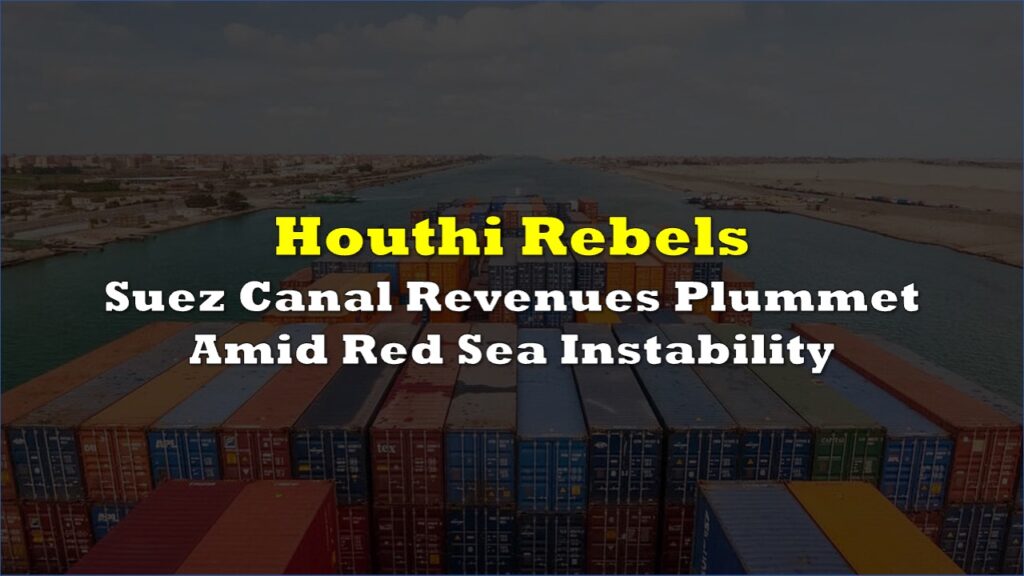The leader of Yemen’s Houthi rebels issued a stark warning on Wednesday, threatening to strike US warships if the Iranian-backed militia becomes a target of the United States. This comes as a response to the formation of a 10-nation coalition by the US to counter Houthi attacks on commercial vessels in the Red Sea.
“Whoever moves with the Americans and involves himself in protecting Israeli ships knows that he is providing an exclusive service to Israel and harming international navigation,” Houthi rebels leader Abdul-Malik al-Houthi said on Wednesday. “We are not one of those who stand idly by while the enemy strikes us.”
For the past month, the Houthis have deployed drones and missiles to attack vessels in the Red Sea, prompting some of the world’s largest shipping companies to reroute their vessels at substantial costs. The attacks are a direct response to Israel’s assault on Gaza, with the Houthis demanding humanitarian aid access to Gaza and an end to what they describe as Israel’s brutal war that has resulted in the death of over 19,000 Palestinians, 70% of them children and women.
In a bold response to the coalition, the Houthis flaunted their air power in an undated video created in a language Americans would understand, e.g. Top Gun. The undated video shows a Houthi Air Force pilot flying a fighter jet with Kenny Loggins’ ‘Danger Zone’ playing in the background.
The Houthi version of Top Gun!!
— The Doc 🇨🇦 (@dobettercanada) December 19, 2023
These guys aren’t playing around.#gaza #humanrights #apartheid #gazagenocide #gaza_bombing #gaza_under_attack #freegaza #freepalestine #boycottIsrael #banADL #stoparmingisrael #banAIPAC#AntiZionismIsNotAntiSemitism pic.twitter.com/jRHOFgsxNs
People have lost their damn minds. These F-5’s (if there are more than one) are from the 60’s. If the Yemeni pilots are lucky, they’ll be easily destroyed on the ground by the US Navy. https://t.co/0LXHCsHGd5
— Diogenes (@WallStCynic) December 19, 2023
Despite the coalition formation, the Houthi attacks persist in the Red Sea.
The Houthis of Yemen
The Houthi rebels emerged in 2014, rebelling against Yemen’s internationally recognized government and sparking a civil war that has led to a devastating humanitarian crisis in Yemen. With backing from Iran, they engaged in a prolonged conflict against a military coalition led by Saudi Arabia. The conflict eventually reached a stalemate, leading to peace talks between Saudi Arabia and the Houthis. Also known as Ansar Allah, the Houthi rebels now control significant parts of Yemen, including the capital Sanaa.
The Houthis possess a substantial military arsenal, including various drones and missiles, with recent successful use of ballistic antiship missiles against vessels in the Red Sea. Earlier this year, Saudi Arabia, a historical adversary of the Houthis, restored formal diplomatic ties with Iran, a close ally of the rebel group.
The Houthi attacks initially targeted southern Israel in October, gradually escalating as Tel Aviv resisted international calls for a ceasefire. Leveraging their proximity to the Red Sea and the Bab al-Mandeb Strait, the rebels have seized commercial vessels and attacked trade ships carrying various goods. The Pentagon reported that some projectiles were aimed at US warships before being intercepted.
The Houthis assert that they will only target vessels linked to Israel, but tracking ownership can be challenging, leading to denials from some targeted companies claiming no ties with Israel.
They aim to secure recognition as the legitimate government of Yemen and force the international community to engage with them as the de facto governing authority, according to Thomas Juneau, an assistant professor at the Graduate School of Public and International Affairs at the University of Ottawa, in an Al Jazeera report.
“In the context of the Gaza war, they want to demonstrate that they are a key member of the Iran-led ‘axis of resistance’ by showing their support for Hamas. As such, I expect their efforts to disrupt maritime traffic in the Red Sea to continue,” he added.
Impact of the Red Sea attacks
The Bab al-Mandeb Strait is a critical maritime route where 12% of global seaborne oil trade and 8% of liquefied natural gas (LNG) pass through. More than 17,000 ships navigate this route annually, with some heading to the Suez Canal, a crucial link between Asia and the West.
Major shipping companies, including Denmark’s AP Moller-Maersk and Germany’s Hapag-Lloyd, have opted out of this route, representing almost a quarter of the global container freight market. Container rates for shipments through the Red Sea and Suez Canal have reached record highs, impacting the shipping industry.
The disruption in maritime trade has already affected Israel, with traffic through its southern port of Eilat coming to a halt. Egypt, heavily reliant on transit fees from cargo passing through the Suez Canal, faces potential economic setbacks. Europe and Mediterranean countries are at risk of significant losses if the situation persists.
Information for this story was found via Al Jazeera, Politico, CNN, Reuters, X, and the sources and companies mentioned. The author has no securities or affiliations related to the organizations discussed. Not a recommendation to buy or sell. Always do additional research and consult a professional before purchasing a security. The author holds no licenses.









